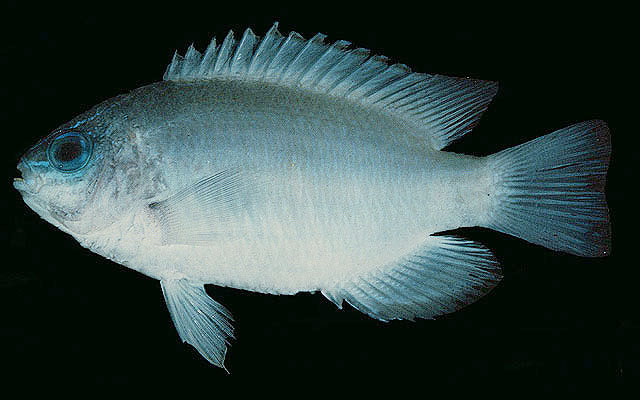| Pomacentridae (Damselfishes), subfamily: Pomacentrinae |
| 11.5 cm TL (male/unsexed) |
|
reef-associated; marine; depth range 0 - 3 m, non-migratory |
| Indo-Pacific: East Africa to the Line and Pitcairn islands, north to Japan, south to Australia. |
|
Dorsal spines (total): 13-13; Dorsal soft rays (total): 12-13; Anal spines: 2-2; Anal soft rays: 11-13. Description: Overall bluish grey, body scales streaks bluish, head lines/spots blue (Ref. 90102). Juveniles are a brilliant blue, but lighter in coloration and not as spectacular as C. cyaneus, becoming dull bluish grey with growth (Ref. 1602). |
| Adults occur among rubble or consolidated reef rock of exposed intertidal reef flats and sandy beaches, subject to mild surge. Also near freshwater run-offs (Ref. 48636). They occur in small groups. Feed mainly on benthic algae. Oviparous, distinct pairing during breeding (Ref. 205). Eggs are demersal and adhere to the substrate (Ref. 205). Males guard and aerate the eggs (Ref. 205). Diurnal species (Ref. 54980; 113699). |
|
Least Concern (LC); Date assessed: 23 September 2021 Ref. (130435)
|
| harmless |
|
Found in Tobi and Merir (Ref. 99878). |
Source and more info: www.fishbase.org. For personal, classroom, and other internal use only. Not for publication.

